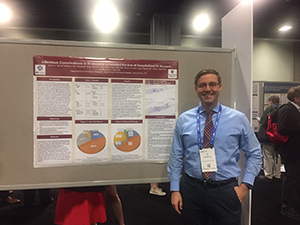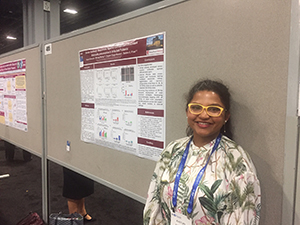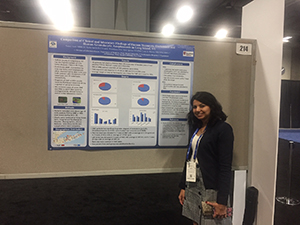The main goal of the program is to develop a high level of clinical expertise of infectious diseases specialists and academic physicians. Fellows are trained at two hospitals, Stony Brook University Hospital (SBUH) and Northport Veterans Affairs Medical Center (VA).
During the 2-year training program, fellows spend 5 months on an intensive infectious diseases consultation service at SBUH and 5 months on the immunocompromised/Transplant ID service, 4 months are spent on the consultation service at the VA, 5 months on research, 4 months on the outpatient clinic and 1 month on microbiology and orientation. Under the supervision of faculty members, the fellow serves as a consultant to the medical service as well as to other services within the Medical Center. The fellow also supervises and teaches medical residents and fourth year medical students assigned to the infectious diseases elective. Outpatient continuity experience is obtained in the Infectious Diseases Clinics at both the University and Northport VA Medical Centers which are operated by the Division of Infectious Diseases.
In the outpatient clinic, we have three main clinics for the ongoing continuity clinic: General ID clinic, HIV clinic and VA clinic. A regularly scheduled half day clinic session is available for the fellows to follow patients who are discharged from the hospital and to provide continuity of care during the 2-year fellowship program. The HIV continuity care clinics is provided at the AIDS Treatment Center at Stony Brook and at the VA under the direct supervision of an attending physician.
Specific areas of training include:
· An appreciation of clinical presentations and pathophysiology of infectious illnesses, including the principal non-infectious syndromes that form part of the differential diagnosis
· An understanding of the importance and nature of the host-organism interactions that shape the appearance, management and outcome of infectious illnesses
· The application of diagnostic modalities in a cost-effective manner for various infectious diseases
· The use of anti-infective and immunomodulatory agents with recognition of their indications, toxicities, pharmacokinetics and cost
· The principles and practice of hospital epidemiology and infection control
The clinical training prepares the fellow broadly by virtue of exposure to a diverse population of inpatients and outpatients including, but not limited to, acute care patients who are on:
· Intensive Care Units (Medical and Surgical)
· Renal Transplantation Service (Medical and Gynecologic)
· Oncology and Bone Marrow Transplantation Programs
· Cardiothoracic Surgery Service
· Burn and Trauma Units
· Diabetes Treatment Unit
· High-Risk Obstetrics Unit.
The VA also provides chronic and intermediate care for veterans in three recently built state-of-the art nursing home facilities. An option available for the interested fellow is a rotation on the Pediatric Infectious Disease Inpatient Service.
During the first 8 weeks of the program, the fellows are provided with summer didactic lectures by the faculty as an introduction to the ID consultation service. All fellows are strongly encouraged to develop their research during the first year under the supervision of a mentor and to attend IDSA to present their research work during the second year of training. Fellows have been successfully presented their abstracts to IDSA every year.


